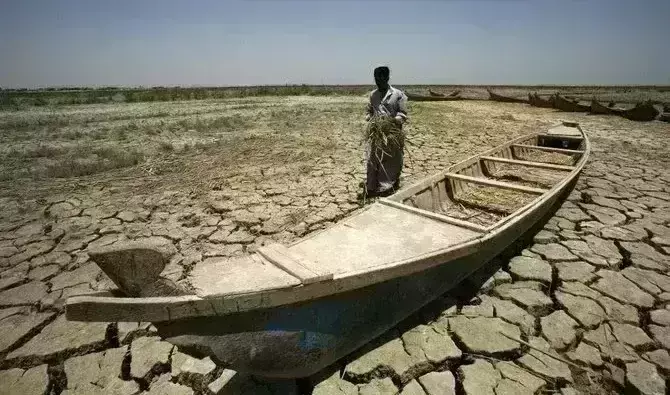
Middle East at higher risk due to climate change: Study
text_fieldsA recent study has revealed that climate change will severely affect Middle East as it examines climate inequalities and threats posed by global warming to security and political stability in the region.
In a new book entitled 'The Power of Deserts: Climate Change, the Middle East and the Promise of a Post-Oil Era', Professor Dan Rabinowitz of the Sociology and Anthropology department at Tel Aviv University stresses that the region could soon witness exacerbated water shortages, decreased agricultural productivity, large scale displacement and conflict as a result of a deteriorating climate.
The World Bank in 2016 forecasted a 0.5-metre rise by 2099 in the MENA region and warned that low-lying coastal areas in Tunisia, Qatar, Libya, UAE, Kuwait and particularly Egypt are at particular risk of it.
"The tragic cases of Sudan and Syria", says Rabinowitz, "demonstrated what could happen when shrinking agricultural outputs force millions to leave rural hinterlands and seek refuge in cities which are ill-equipped and often unwilling to absorb them." He also warned that global warming could create further abrasion and conflict between ethnic groups.
The book also elaborates on how the technologically advanced nations in the region are responsible for higher per-capita emissions of greenhouse gases. While the wealthy nations will be able to acclimate themselves from its risks, the poorer neighbors will suffer the most. The book, however, suggests the Middle East, already hotter and dryer than most parts, could help with a solution to tackle these issues.
A recent transition across the ME toward renewable energy, according to Rabinowitz, should be positioned to solar energy. As oil being its major supplier to economy for over the past 70 years, the Persian Gulf should, now, invest and utilize the abundant sunny days for solar energy or other domestic electricity production.
"Rather than resisting the energy transition, which was underway even before COVID-19 and was accelerated since, the Gulf States could switch to the 'right' side of history, join the struggle to curb climate change, and gain respect in the eyes of many who once looked at them with suspicion and contempt," said Rabinowitz. "Significantly, this transformation on their part does not hinge on an ideological rebirth and the adoption of a 'green' outlook. It could transpire as a rare historical junction where self-preservation on the part of some works to the benefit of many others."






















